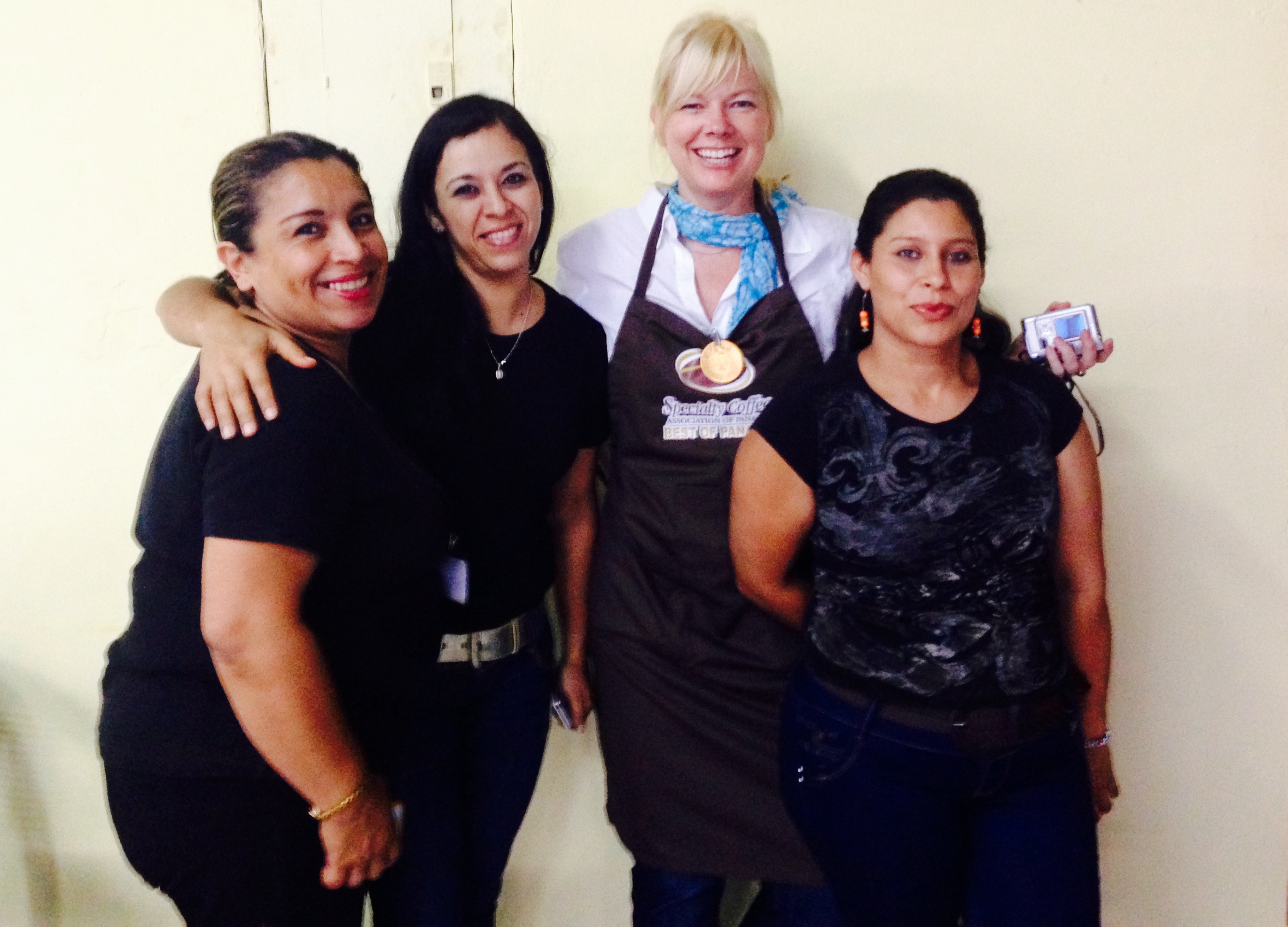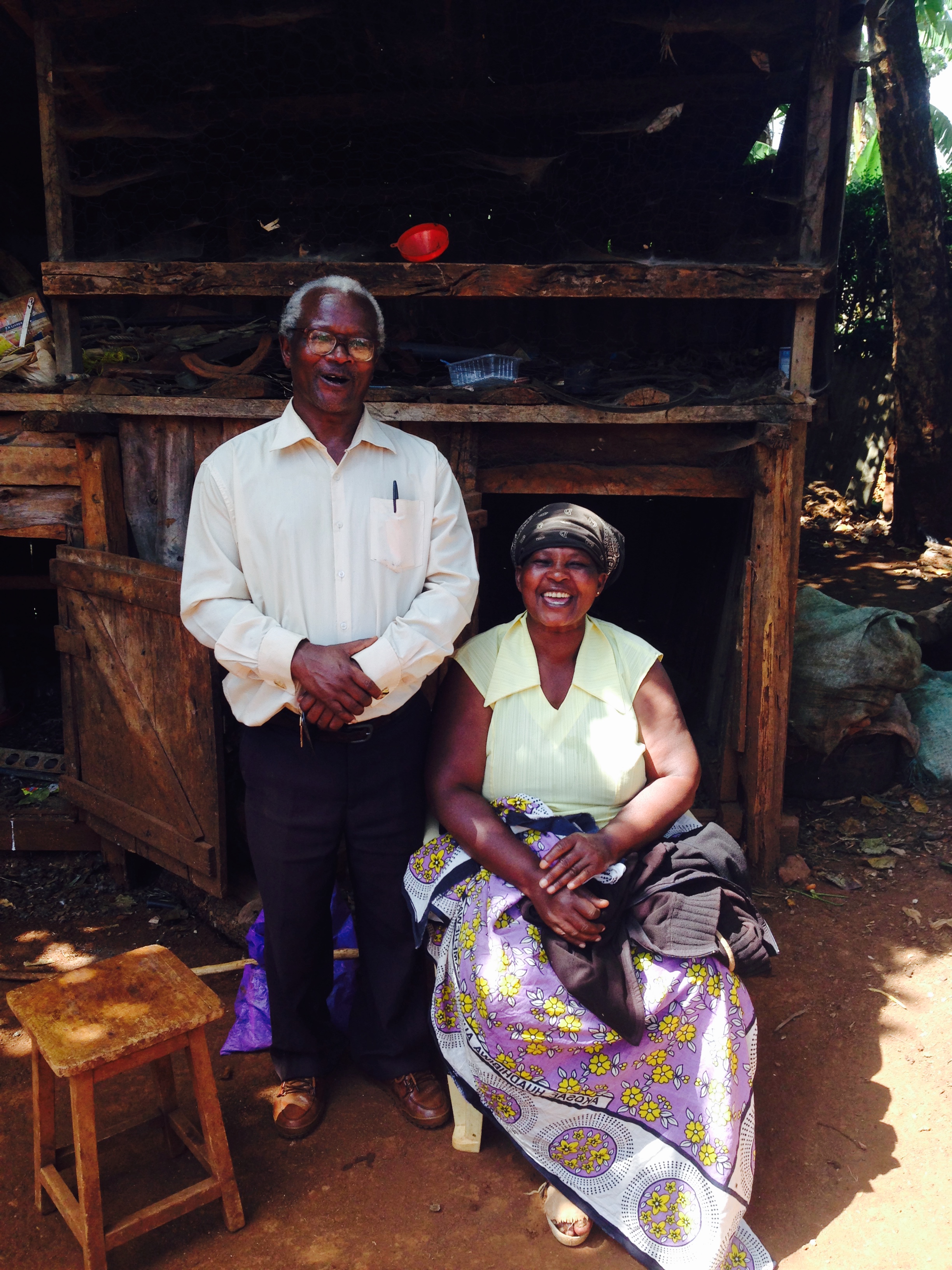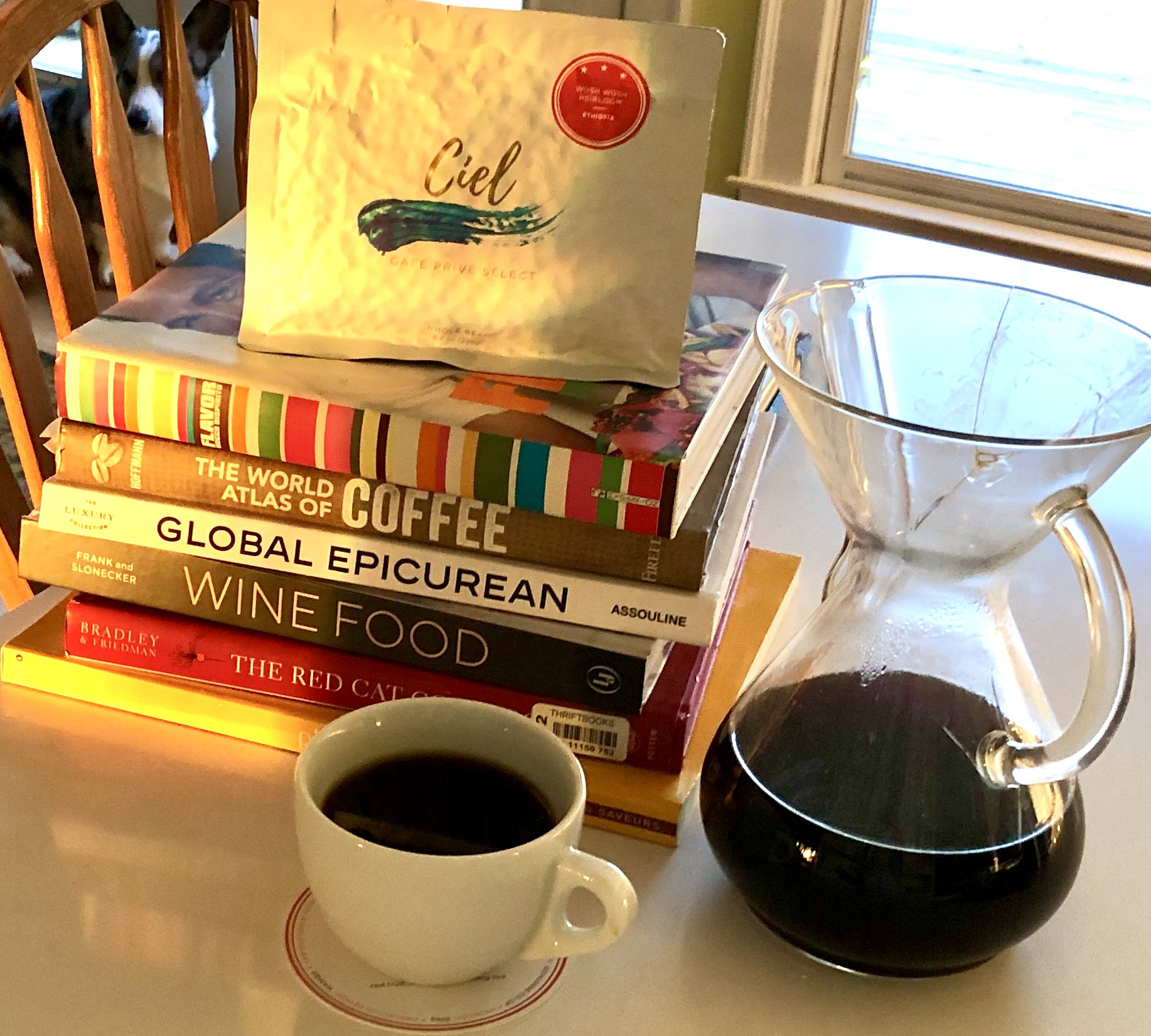Seeking Excellence with Jennifer Stone
*Some quotes have been shortened for clarity and length.
Whether she’s jet-setting across the globe in pursuit of the next great coffee, cupping a delicate Geisha in Panama, or spreading coffee wisdom on her podcast, Jennifer Stone is driven by her mission to connect consumers with extraordinary coffees from across the globe and the producers who grow them. She has dedicated the last two decades to seeking excellence, from crop to cup, all while donning a neatly tied scarf around her neck.
Her journey began in Puebla, Mexico. Relaxing at a small cafe in the plaza one afternoon, ruminating on her time in Mexico, Stone became immersed in the world around her, taking in all the sights and sounds — cafe walls lined endlessly with books, the sweet melody of strumming guitars filling the air, and vibrant conversations dancing around the room. It was then, at that moment, she realized this was an experience she needed to share.
“I wanted to recreate this feeling, this experience, this cafe that I was in” she recalled. “I had no idea how to go about it at the time, but I knew it was something I wanted to bring to life in my community and share.”

Formally, Jennifer Stone is a Licensed Quality Grader and coffee educator, but that only skims the surface. Stone is a veteran of the industry, devoting her time and energy to the art of coffee. She’s held roles in nearly every aspect of the industry, carrying the titles of cafe owner, roaster, business partner, Q Grader, educator, podcast host, and beyond. Jennifer has immersed herself in the business, touching the lives and palates of people across the globe.
“I’ve always been really involved in what the customer is doing, how coffee is being served and used, and how my customers experience it,” Stone said. “The equipment part of it has really taken off in the last couple of years.”
Starting off as a cafe owner sourcing from others, Stone progressed to roasting her own coffee, gradually mastering the craft and eventually working her way to the prestigious honor of judging the Cup of Excellence. Her sophisticated palate is capable of identifying the most subtle of notes and defects, allowing her to meticulously critique each coffee she scores.
“I want them to start at 100,” she said. “I look for what I call complexity of flavor, some might call clarity of flavor, but when I’m looking for a really extraordinary coffee, I’m looking for 2 to 3 distinct flavor notes that are pretty easy to identify.”
Growing coffee of this caliber is a laborious craft, and often times a farmer’s livelihood is on the line. Q graders and organizations like the Alliance for Coffee Excellence and the Cup of Excellence help bring awareness to exemplary farmers and enable them to make more money on their coffees and build lasting relationships between quality farmers and buyers.
“ This is one industry that I don’t mind the prices going up.”
“Ultimately, it helps them [the farmer] improve their coffee,” she said. “I think as Q graders, it’s our responsibility to know if there is a problem or if something is off with a coffee. It’s our job to know what might have caused that and how to help them avoid that going forward so they can charge more for their coffee. This is one industry that I don’t mind the prices going up.”
Coffee farmers and their communities rely almost solely on their next harvest, but unfortunately many outside sources, beyond that of mother nature, can affect the outcome of their harvest and in turn, their livelihood.
“I would like to see that farmers who have their entire next harvest, house payment for a year, and farm payment tied up into a lot of coffee, have a backup plan,” she said. “Maybe somebody commits to their coffee and backs out of a commitment, and 8 months pass and their crop becomes devalued. I don’t know the answer, but I would like to see farmers not get penalized because someone made a mistake.”

During a tireless trip to Kenya in pursuit of the perfect Kenyan coffee to purchase, Stone encountered a coffee that left a profound impact on not only her, but an entire community. After tasting dozens of coffees that didn’t hit the mark, she finally found 3 she felt were extraordinary, one of which was grown by a farmer, James Gachaki, and his magic coffee “sauce.”
“He was saying “source,” but I thought he was saying sauce,” she laughed. “So I was like, the magic sauce of the coffee, but the source, and the farm and the trees is actually what he wanted to show me.”
Despite there being no magical coffee sauce, Gachaki’s coffees came from “beautiful, lush, shiny, green trees” that greatly differed from that of his neighbor’s that grew only 50 yards away. His innovative farming techniques and discovery that an organic fish meal fertilizer made his coffees ripen more uniformly and gave them significantly more flavor.
In addition to growing phenomenal coffee, Gachaki actively worked to improve his community. He and his wife built a school on their property that local children attended and also functioned as the church that he pastored, however, he longed to build a separate location for his church. Upon returning home, Stone connected with local organizations and charities in her community that helped to successfully raise and match money for Gachaki’s church which has since been built.
“It’s hard,” she laughed. “Fundraising is hard, much harder than roasting coffee. But it had such an impact, an impact on me, an impact on him, an impact on the people in that community.”

Stone’s involvement in the specialty coffee industry continues on as she dives into new projects, educating companies on different brewing solutions, helping to expand the palates of home coffee enthusiasts, exploring the stories of the people and places on her podcast, and sharing coffees from around the world through Ciel Café Privé Sélect.
“I am super excited about my online Coffee Tasters Course debuting next month, as well as the Coffee Explorer podcast," she said. "And, I’m always on the quest for amazing coffees to share with coffee drinkers through Ciel Coffee.”
Stone hopes to educate and inspire the next generation of coffee lovers to keep exploring and tasting new coffees, and to never quit seeking excellence.
“Taste coffee. Drink coffee. Taste every coffee you can get your hands on in different ways,” she said. “Expand your palate and your mind to really think about how coffee tastes.”
Post publication, Jennifer Stone reached out with further thoughts on the conundrum of green coffee commitment addressed in this article, her response reads below.
"After considering this thought about this challenge, I realize there IS a solution in place. In recent years, many quality green coffee importers have diversified their brands and created product lines of coffee that offer a much smaller quantity to roasters. Also, new importers and purchasing platforms have arrived on the scene. So instead of committing to a container of coffee, a pallet, or even a 152-pound bag for example, roasters can buy a small quantity, mitigate their cash flow, pay a bit more for the coffee (which contributes to the value chain) and customers get to enjoy good coffees."



